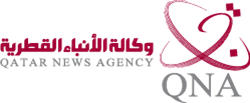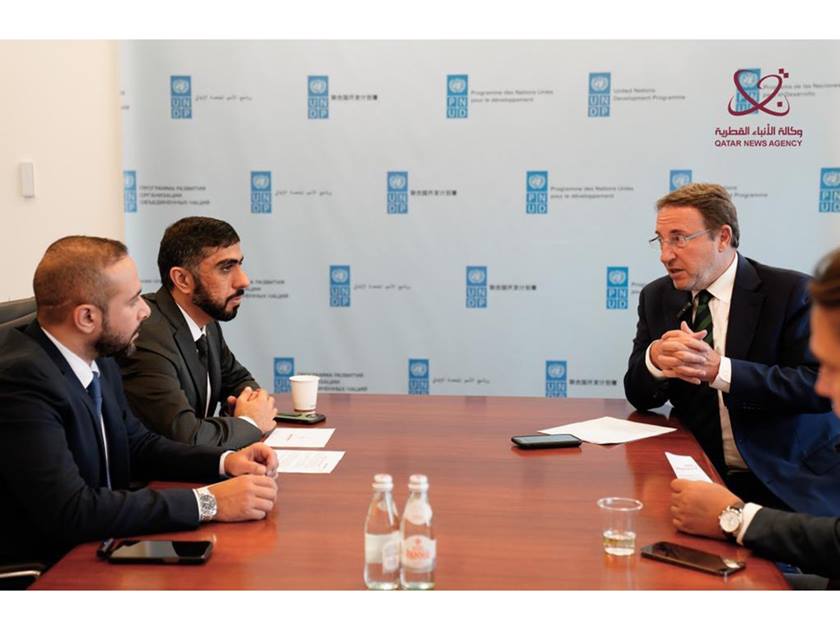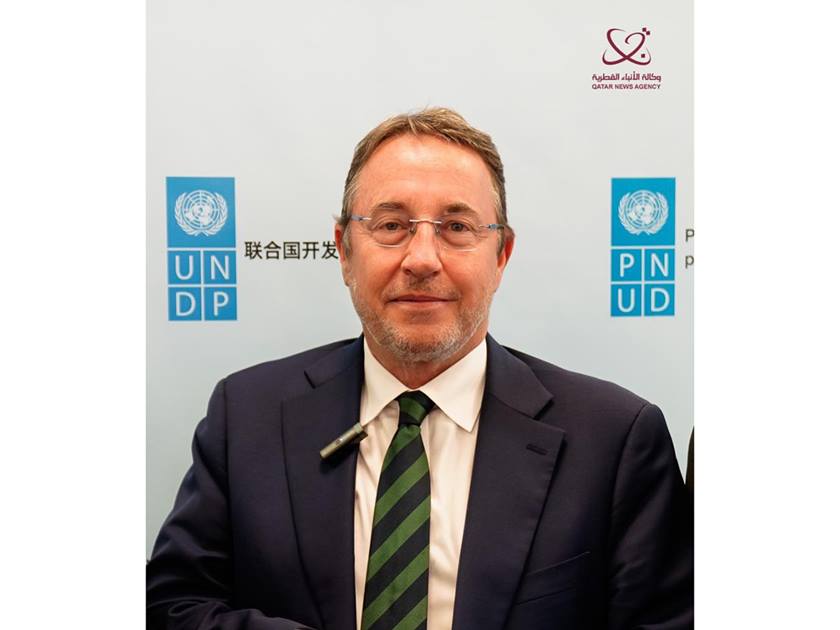New York, September 18 (QNA) - The United Nations Development Program (UNDP) Administrator Achim Steiner praised the close strategic partnership with the State of Qatar and its pioneering role in financing the program's projects and enhancing its efforts to reduce poverty worldwide and achieve development and investment in the future.
In an exclusive interview with Qatar News Agency (QNA), Steiner pointed out that the State of Qatar participates with the United Nations Development Program in providing support to 170 countries around the world through Qatar Fund for Development in particular, indicating that its involvement in sustainable development efforts has provided the opportunity to overcome obstacles to financing several projects.
On the other hand, the UNDP Administrator described the existing strategic partnership between the State of Qatar, Germany and the United Nations Development Program as unique, as it has resulted in less than three years in the development of "accelerator labs" concerned with promoting innovation and keeping pace with technological changes in 91 countries around the world out of a total of 115 countries.
In this context, Steiner said, that UNDP have an important partnership with Qatar Fund for Development, which is to develop "accelerator labs" , which are used by several countries in the field of creative thought industry, and the best example of this is Lebanon, Vietnam and the African continent.
With regard to the humanitarian situation in Afghanistan, Steiner stressed that the State of Qatar has been working with the United Nations Development Program for many years in supporting the humanitarian response in this country.
He pointed out the importance of its participation in the program concerned with developing societies and strengthening their resilience in light of the economic difficulties experienced by Afghans.
In this context, the UNDP Administrator stressed that development is the only solution to get out of the faltering economic and political situation in Afghanistan, pointing out that about 90 percent of the Afghan population will live below the poverty line by the end of 2022.
On the strategic plan of the United Nations Development Program during the years 2022-2025, Steiner explained that the program will focus on investing in sustainable development, as well as managing the current crises experienced by the world such as the food and energy crisis and climate change, as well as the effects and repercussions of the Coronavirus pandemic.
The UNDP Administrator Achim Steiner considered that finding effective solutions to a large number of crises depends on recognizing them, including the problem of climate change, which has affected agriculture, energy, transport and development opportunities in general. "We are living through difficult times and this is the challenge that we must tackle in order to move forward," he said.
Regarding UNDP role in Ukraine and the extent to which it was affected by the war there, Steiner explained that the program had to change its work there after it focused on development priorities, but now it is dealing with the crisis of the displaced who lost their homes and jobs, in addition to helping the government in the reconstruction programs in the country and investing in the digital field, as well as helping people to find jobs and set up small projects.
He considered that the issue of returning the displaced in Ukraine to their areas faces many challenges, warning at the same time that the issue of international support provided by governments to the United Nations Development Program is facing difficulties due to the suffering of some countries from rising debt, fuel and food prices.
On the issue of the Coronavirus pandemic, and the efforts of the United Nations Development Program to prevent its spread in the future, he stressed that work is currently underway to solve the problem of inequality in the distribution of vaccines, especially in less developed countries, as well as address the fragility of health systems and their infrastructure in anticipation of future pandemics, in addition to ensuring that countries possesses quick response mechanisms.
Steiner pointed out that the United Nations Development Program was quick to establish licenses that would enable governments to hold emergency meetings in the event of a general closure, in addition to working to mobilize resources and capital through establishing international partnerships with the private sector, which works to improve the capabilities of least developed countries to be ready and have the means to respond to any potential pandemic.
The United Nations Development Program was established by the United Nations General Assembly in 1965 by merging two previous UN bodies: the Expanded Program of Technical Assistance (EPTA), which was established in 1949, and the United Nations Special Fund (UNSF), which was established in 1958.
Through its strategy, the program seeks to help 100 million people get out of multidimensional poverty, provide clean energy to more than 500 million people, and integrate up to USD 1 trillion in public and private financing; in order to achieve the sustainable development goals.
The program has supported many countries to adopt and implement more ambitious plans to mitigate and adapt to climate change, and has also worked with United Nations system partners and others to meet urgent and immediate requirements and pave the way towards achieving peace and development.
UNDP obtains its funding from a variety of partners, such as Member States, multilateral organizations, non-governmental entities, the private and charitable sectors, and funding institutions.
UNDP, in cooperation with other UN partners, was able to respond to multidimensional challenges and crises, as it was able to help achieve the World Health Organization's goal of providing vaccines against the Coronavirus to at least 70 percent of the world's population in 2022.
With its funding, more than 70 countries have successfully used national funding frameworks to finance their recovery from the Coronavirus pandemic, and the program has also worked with the International Labor Organization to create at least 400 million jobs, in addition to working on other global initiatives.
The United Nations Development Program saw a slight decrease in funding last year (2021), and annual contributions fell by 4 percent to USD 5.3 billion, down from USD 5.5 billion in 2020.
Of this total, USD 2 billion, or 38 percent, came from multilateral partners, USD 1.9 billion, or 36 percent, from donor governments, and USD1.4 billion, or 26 percent, from program country governments.
The program focuses its work in four main areas, namely, reducing poverty and achieving the Millennium Development Goals by supporting local development projects and programs and assisting governments in setting economic and social policies, in addition to strengthening democratic governance, providing assistance to civil society organizations and financing their projects aimed at combating corruption and protecting rights of women and minorities.
The program also focuses on preventing crises, reducing natural hazards and disasters, helping afflicted countries recover, protecting the environment and supporting sustainable development projects aimed at combating desertification, preserving forests, water and biodiversity, in addition to reducing carbon emissions and adapting to climate change.
The program also deals with other issues such as human rights, women's empowerment and vulnerable groups in society, in addition to combating AIDS. (QNA)



